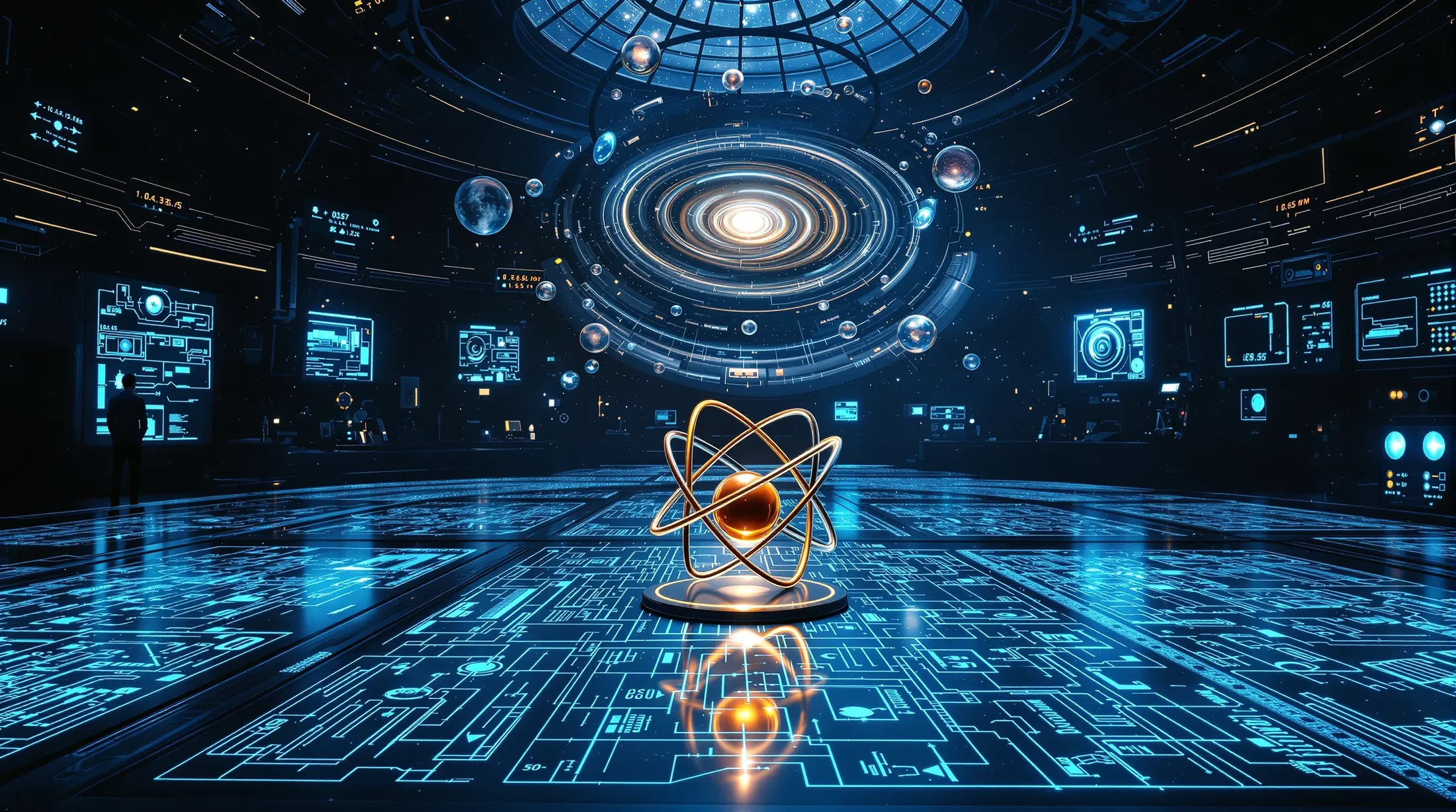How to Become a Nuclear Engineer: A Step-by-Step Guide
Embarking on a career as a nuclear engineer offers an opportunity to shape the future of clean energy and contribute to groundbreaking technological advancements. This comprehensive guide will walk you through the essential steps and requirements to enter this challenging yet rewarding field.
Understanding the Role of a Nuclear Engineer
Nuclear engineers are pioneers in energy technology innovation, combining expertise in advanced physics, materials science, and engineering principles. Their work encompasses the research, development, and management of systems that harness nuclear energy while ensuring safe and sustainable solutions for nuclear waste disposal.
These professionals’ impact extends across multiple sectors, including:
- Power generation and distribution
- Medical technology development
- Industrial applications
- National defense systems
- Carbon-neutral energy solutions
What Do Nuclear Engineers Do?
Nuclear engineers perform diverse responsibilities that require specialized knowledge and precision. Their primary duties include:
- Designing specialized equipment for nuclear power plants
- Developing medical imaging devices and radiation therapy technologies
- Creating reactor cores and radiation shielding systems
- Establishing safety protocols and compliance procedures
- Conducting experiments and analyzing operational data
- Monitoring system performance and safety measures
With a median annual salary of $116,147, these professionals are well-compensated for their expertise in maintaining critical infrastructure and advancing nuclear technologies.
The Importance of Nuclear Waste Management
Nuclear waste management represents a crucial aspect of nuclear engineering, requiring sophisticated solutions for:
- Containment system development
- Processing technique implementation
- Long-term storage solution design
- Environmental impact minimization
- Public health protection measures
Educational Path to Becoming a Nuclear Engineer
The journey to becoming a nuclear engineer requires comprehensive education and specialized training. Most positions demand at least a bachelor’s degree, with many professionals pursuing advanced degrees for career advancement.
Bachelor’s Degree in Nuclear Engineering
| Program Component | Description |
|---|---|
| Duration | 4 years |
| Key Coursework | Nuclear physics, reactor theory, thermodynamics, radiation measurement |
| Essential Requirements | ABET accreditation, laboratory work, design projects |
| Additional Experience | Internships, cooperative education opportunities |
For those unable to access dedicated nuclear engineering programs, pursuing related engineering disciplines with nuclear engineering electives provides an alternative pathway into the field.
Advanced Degrees and Specializations
While a bachelor’s degree opens doors to entry-level positions, advanced degrees unlock specialized roles, research opportunities, and leadership positions in nuclear engineering. Master’s programs, typically spanning 1-2 years, provide advanced coursework and research experience in specialized areas such as:
- Nuclear security systems
- Fusion technology development
- Medical radiation applications
- Advanced reactor design
- Nuclear materials science
For those pursuing research, academia, or high-level design positions, a Ph.D. in nuclear engineering represents the pinnacle of expertise. These doctoral programs, requiring 4-6 years beyond a bachelor’s degree, focus on original research contributions and specialized knowledge in areas including:
- Reactor design and safety protocols
- Nuclear materials science and engineering
- Nuclear fuel cycle optimization
- Radiation detection systems
- Nuclear security and nonproliferation
- Medical physics applications
- Environmental protection measures
Licensing and Certification for Nuclear Engineers
Unlike many engineering disciplines, nuclear engineers can begin their careers without specific licensing requirements. However, professional certifications have become increasingly valuable for career advancement, demonstrating specialized expertise and commitment to industry standards. As the field evolves with new technologies and safety protocols, employers particularly value candidates with certifications in radiation protection, reactor operations, and nuclear quality assurance.
Is Licensing Required for Nuclear Engineers?
Entry-level nuclear engineering positions typically require only a bachelor’s degree in nuclear engineering or a related field, not a license. However, career advancement often necessitates specific certifications, particularly for supervisory roles or positions with public safety implications.
| Certification Type | Purpose |
|---|---|
| Nuclear Regulatory Commission (NRC) Certification | Required for specific roles in nuclear power plants |
| Professional Engineer (PE) License | Necessary for design approval and critical specifications sign-off |
Career Outlook and Salary Expectations
Nuclear engineering offers competitive compensation reflecting the specialized expertise and critical responsibilities involved. While the field shows modest employment contractions, retirement trends create steady opportunities for new professionals, particularly in emerging specialties and technologies.
Nuclear Engineer Salary Insights
Nuclear engineers rank among the highest-paid engineering professionals, with compensation varying based on:
- Geographic location – metropolitan areas and federal facilities typically offer higher salaries
- Industry sector – private industry, especially power generation, often provides premium compensation
- Education level – advanced degrees and specialized certifications command higher earnings
- Experience level – seasoned professionals with expertise in emerging technologies earn top-tier salaries
- Specialization area – expertise in small modular reactors or fusion technology attracts premium compensation
Job Outlook for Nuclear Engineers
The field projects a 1% decline from 2023 to 2033, representing approximately 100 fewer positions. However, an estimated 700 annual openings will arise from workforce transitions and retirements. Growth opportunities exist in:
- Advanced reactor design and development
- Medical applications and imaging technology
- Nuclear security systems
- Cross-disciplinary roles combining nuclear expertise with data science or AI
- Environmental protection and waste management
Work Environment and Job Opportunities
Nuclear engineers operate in diverse professional settings that combine technical expertise with practical applications. Their work primarily takes place in office environments, though they may also spend time in laboratories, production facilities, or power plants. The field demands meticulous attention to detail, strict adherence to safety protocols, and effective collaboration with multidisciplinary teams of scientists, technicians, and engineering specialists.
Typical Work Settings for Nuclear Engineers
The primary workplace for nuclear engineers is a professional office environment, where they focus on:
- Design work and system modeling
- Computer simulations and data analysis
- Technical documentation preparation
- Project planning and coordination
- Safety protocol development
Beyond office settings, nuclear engineers work in specialized environments based on their roles:
| Environment | Primary Activities |
|---|---|
| Research Laboratories | Conducting experiments, testing materials, developing new technologies |
| Nuclear Facilities | Overseeing operations, equipment installation, safety compliance |
| Construction Sites | Supervising facility development, system implementation |
Exploring Job Opportunities in Nuclear Engineering
The most promising employment prospects exist within government organizations and innovative private companies. Key employers include:
- Department of Energy’s national laboratories – offering cutting-edge research opportunities
- U.S. Navy’s nuclear program – focusing on propulsion systems and naval applications
- Startup companies (TerraPower, NuScale, Commonwealth Fusion) – developing SMRs and fusion technologies
- Established corporations (GE) – maintaining nuclear divisions
- Medical facilities – utilizing nuclear technology for diagnostic and treatment purposes
While traditional nuclear power sectors show modest growth, emerging technologies and retirement trends create steady opportunities for new professionals. Both specialized nuclear engineering degrees and related engineering disciplines with nuclear concentrations can lead to successful careers in this dynamic field.







